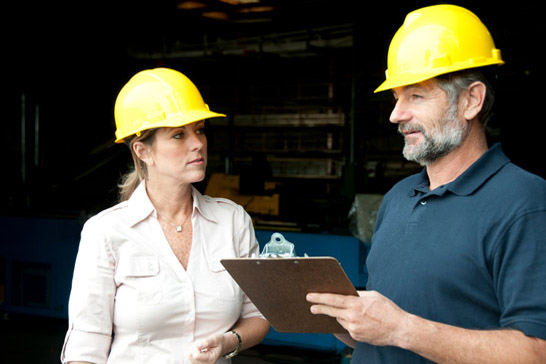
Industry Specialist Aviation Production/Technology
What exactly do industry specialists in aviation production/technology do?
Industry specialists in aviation production or technology take on expert and leadership tasks in all operational areas of the aircraft industry. They oversee the production, assembly and maintenance of aircrafts, helicopters, rockets and satellites. Furthermore, they are responsible for complying with economic regulations as well as appointment or quality assurance regulations.
Industry specialists in aviation production or technology work predominantly in the aviation & space or aircraft industry. Task fields include control of the manufacturing process, repairs and maintenance in the workshops of airlines or airports. Furthermore, they might be employed at airbases in the Federal Army. Moreover, they can find employment opportunities in companies which rent out aircrafts.
Which requirements do industry specialists in aviation technology need to fulfil?
Continued training in accordance with EASA Part-66
Admission to attend the individual training modules so as to obtain a license in accordance with EASA Part 66 depends on the prior knowledge of the candidate. In certain circumstances, passing an exam in a different module can serve as prerequisite for admission. Depending on the area, several years of professional experience may also be an additional requirement.
Continued training in accordance with Air Traffic Rules for Staff (LuftPersV)
In order to access continued training in conformity with LuftPersV., completed vocational training in one of the necessary specialist areas is required. For a First Class Certifier Permit, you need to do the vocational training at a state- or state recognised technical school or advanced technical college. In addition, you may need to prove several years of work experience in the relevant area.
Furthermore, applicants for authorised personnel licenses need to be at least 18 years of age.
How can I become an industry specialist in aviation production/technology?
To become an industry specialist in aviation production/technology, you need to obtain a license which entitles you to issue release certificates. The job titles vary depending on which category of license you obtain.
Preparation training courses for the individual licenses take place at recognised Training Institutes which have been verified by the Federal Aviation Office. They are carried out in accordance with the EASA Part 66 guidelines. Furthermore, preparation courses for obtaining the authorised personnel licenses are offered in accordance with the Regulations for Aviation Personnel.
Training courses are generally organised in modules or thematic blocks of various durations. To get admitted to the exams, you do not necessarily need to take part in the modules; however, if you do not attend them, the scope of the exam is usually increased significantly.
The duration of courses to obtain licenses for authorised personnel in accordance with the European Aviation Safety Agency (EASA) Part-66 varies depending on which licence is being obtained, your educational background and any other licenses you may have already obtained.
Where does training to become an industry specialist in aviation production/technology take place?
Theoretical lessons normally take place in the training rooms at educational institutes which have been recognised by the Federal Aviation Office.
The practical part takes place in an airplane shipyard or in a flight simulator.
As the number of educational institutes is limited, course participants may need to accept long travel time and an overnight stay somewhere.
How good are the prospects of advancement as an industry specialist in aviation production/technology?
Constant continued education is a part of daily life for certifying staff, as the profession's framework conditions are continuously changing.
How high is the salary as an industry specialist in aviation production/technology?
The salary for industry specialist in aviation production/technology varies from employer to employer. The average gross salary comes to around 3,400 EUR (status from 2010).